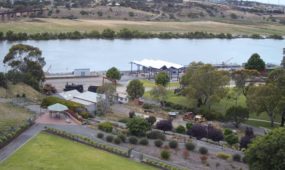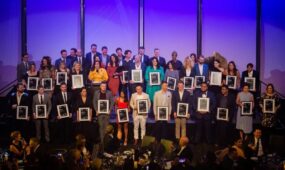Technology emptying classrooms
Uncategorized
THE rapid expansion of technology in education is revolutionising traditional institutions and emptying lecture theatres.

Sign up to receive notifications about new stories in this category.
Thank you for subscribing to story notifications.
A growing number of universities now allow students access to online streams of lectures and encourage independent learning.
The University of South Australia is this month hosting a 10-day symposium to explore the evolving role of technology in contemporary education and independent learning.
The Digital Learning Week, which runs from March 8 – March 18, includes presentations on technologies to support self-directed learning through social interaction, Big Data, learning analytics, algorithmic accountability and workshops from international experts in digital learning.
Attendees are also able to experiment with emerging learning technologies to gain a better understanding of emerging innovations.
Event founder and Professor of Learning Analytics at the University of South Australia Shane Dawson said the role of technology in education had never been greater.
“The role of teachers will quickly change over the next few years and technology will obviously be the catalyst,” he said.
“We won’t have lectures (in theatres) any more, but we will have technology enabled collaborative spaces.
“There is not a job around now where people do not have to use technology, so the more that students are equipped with how to use these tools to progress their learning, then the better off they will be.”
There is a large shift towards online learning for the majority of the world’s top tier universities and digital learning is now growing by up to three to five times the rate of campus enrolment.
Educational institutions that have adopted technology as a teaching aid, provide easier access to learning and can reduce education costs for students.
Prof Dawson said teachers needed to promote self-regulated learning and student independence.
“You can relate it back to jogging and what people call the quantified self,” he said.
“When people are collecting data about themselves, like running 5km in twenty minutes, you can reflect on areas that need improvement.
“Similarly, it could be something as simple as searching for information online. Learning how to be a better researcher and obtaining information on your own.”
Prof Dawson set up the Digital Learning Week alongside renowned academics Professor George Siemens from the University of Texas at Arlington and Professor Dragan Gasevic from the University of Edinburgh.
Sixteen national and international researchers with extensive expertise in multiple fields including computer supported collaborative learning, networked learning, artificial intelligence, learning sciences and e-learning are presenting at the event.
The three conference founders also collaborated on a research project titled “Preparing for the digital university: a review of the history and current state of distance, blended, and online learning”.
It highlights the role of technology in making digital education as effective as traditional institutionalised education.
The research also shows that more students are involved in online courses and universities have responded accordingly, offering a greater range of digital learning options.
“The world is digitising and higher education is not immune to this transition … the trend is underway and seems to be accelerating,” Prof Siemens said.
“Higher education leaders around the world are facing the difficult challenge of re-architecting the university to reflect the modern economy and the digital age.
“If we don’t change how we teach, I can certainly see a future where teachers are far less prominent in the education system.”
South Australia’s capital Adelaide has three-long standing public universities, Flinders University, University of South Australia, and the University of Adelaide, each of which are consistently rated highly in the international higher education rankings.
Jump to next article



